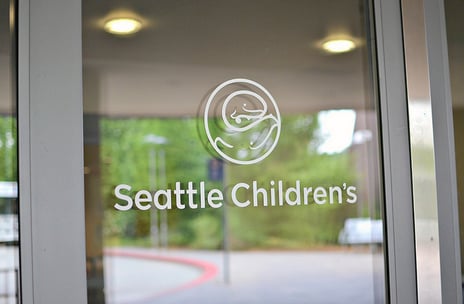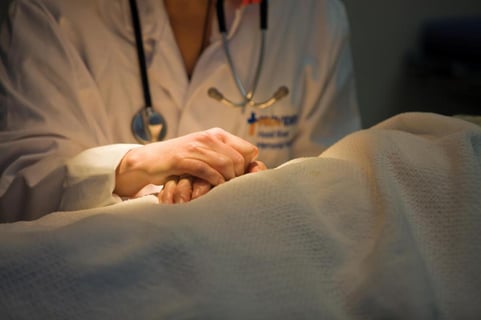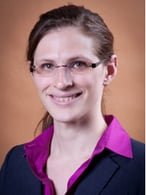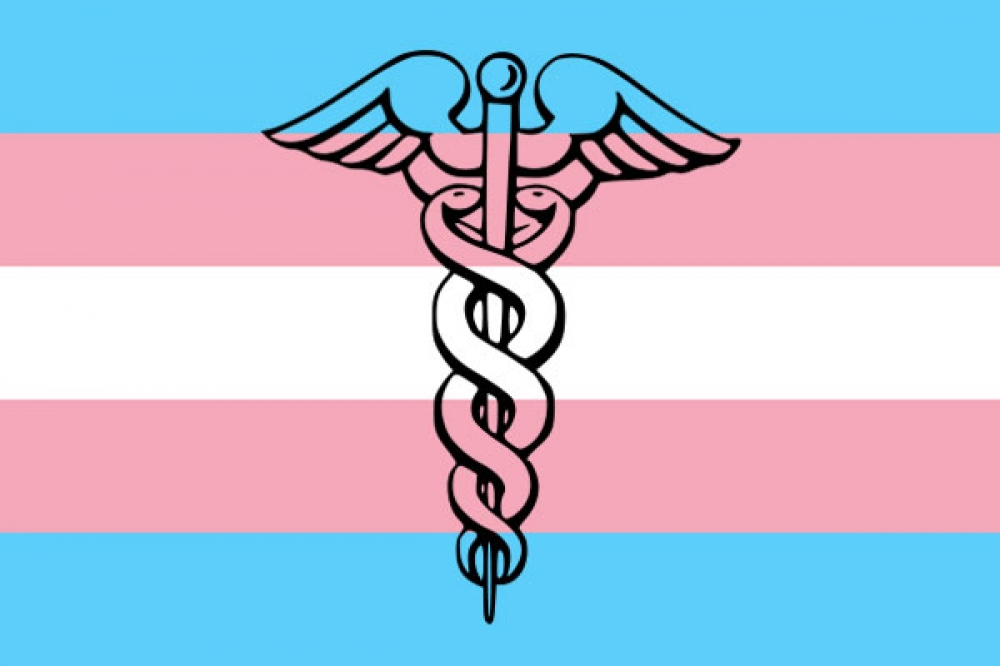In 2006 I was sitting in the waiting room of a monthly free trans health clinic in Portland. It was run by volunteer medical providers and was one of the only places in the city (and in much of the state) where trans youth were able to find understanding doctors to prescribe hormone therapy.
It was a scary, vulnerable and exciting time. I had just moved back into town and was struggling hard to find anyone who would hire a newly-out trans woman who didn’t always “pass,” a problem that many trans people face. I was still meeting the circle of queer & trans friends who would help me live through this second adolescence, and I still know people that I met while waiting for those first appointments in uncomfortable plastic chairs.
This month, over 10 years later, I got to help initiate hormone therapy for transgender teens for the first time – and this time I was the one with the stethoscope around my neck. In two months I will become the first person in my family to hold an MD degree. I spent my last month on an adolescent medicine rotation, spending part of it at the Seattle Children’s Hospital Gender Clinic, which opened in late 2016 to serve the needs of trans adolescents and young adults.

I sometimes find myself a little overwhelmed by how different the world has become. For several years I fell out of the loop – between deaths in my family and among friends, rigorous medical studies, and a program that placed me in Idaho and Montana for most of a year, I hadn’t found the space to do in-person trans health work. I was still used to my memory of a small group of volunteers running on no resources, patients with no health insurance, and few professional guidelines to inform their care. In 2006 the informed consent model of providing hormones was just coming into wider use, freeing trans people from a lot of the awkward and often expensive hoop-jumping that used to be required for people to be themselves.
Now, on my gender clinic days, I see patients coming in at ages 15-19, and accompanied by their parents – their parents! Not one of these teens was homeless. Their parents did not always understand at first, but I was surprised to find that they were largely supportive. Of course, this is not always the case. A hugely disproportionate number of homeless teens identify as LGBTQ. But to see adolescents come into gender clinic with parents who were supportive enough to sign consent for treatment when their child was still too young to do so was a heartening experience.
Because of the tireless advocacy and activism in Washington State from organizations like Gender Justice League, Ingersoll Center, and many others, transgender care is insured under our state Medicaid program. No one I met was on hormones they had to order on the internet in secret. No one was hooking for surgery money. I honestly don’t know how this sounds to you, but for me it feels disorienting. These things were so integral to the community when I came out that its absence feels bewildering.

This was, of course, a tiny slice of the community, and I know all of our old problems are still out there. Right now the access, quality, and competence of the care available is better than it’s ever been, but there is a long way to go. This clinic is one of only a handful like it in the United States – and while they are helping many families, at least 100 families are still awaiting an initial intake because the capacity of these providers is limited. The doctor I worked with, a pediatrician, expressed concern that he often has difficulty finding providers he can transition his patients to when they age out of the pediatric care system – especially those from more rural areas who drive long distances to be seen. There is still much clinical research to be done. And some of our biggest wins of the last 10 years, like the insurance changes that made care available to so many low-income transgender people, are actively under siege. We have made change, but some of that change can be undone unless we continue to fight for it.
At the end of medical school, we “match” to a residency. Residency is essentially on-the-job training, and your first job as a new physician. After a long process of applying and interviewing, a complex computer algorithm decides where you will go. We all find out on one day in the middle of March, all at the same time. On March 17 I opened an envelope to find that I will be spending my next three years at the Providence Oregon Family Medicine Residency in Portland. Going back to the city I’ve called home feels like a fitting bookend to the experiences that got me interested in medicine in the first place.

I am excited to build the foundation of clinical knowledge I need to finally start doing this work on my own. It has also been amazing to put down the feeling that I need to conceal my being trans to all of my patients for fear of drawing negative attention. In this clinic, I find that parents & patients alike will suddenly perk up and ask new questions the few times that it has come up. The patients seem relieved to know that the person talking to them about hormones is also trans, and the parents – even the ones that are a little skeptical – are relieved to know that if they want to, their trans kid lives in a world where they could become a doctor, too.
 This post was written by George Benes, MD & Michael Mallee, EdD Point Scholar Rachel Jackson.
This post was written by George Benes, MD & Michael Mallee, EdD Point Scholar Rachel Jackson.
Rachel is studying Medicine at University of Washington School of Medicine. She is interested in doing primary care with urban underserved populations with an emphasis on the low-income LGBTQ community and sees medicine as a tool for social transformation. Read more about Rachel here.

